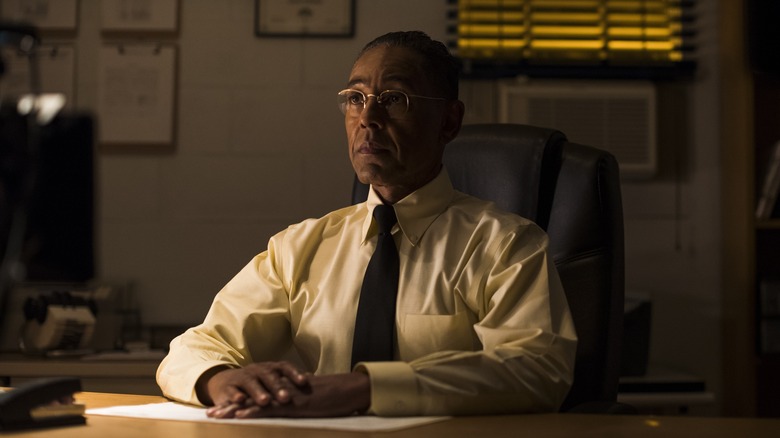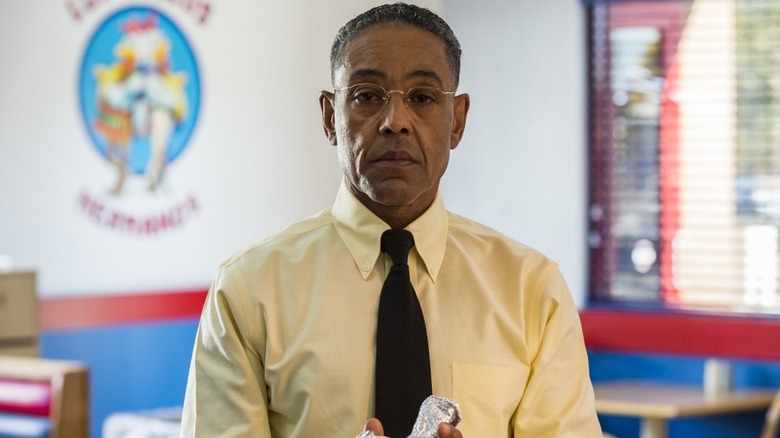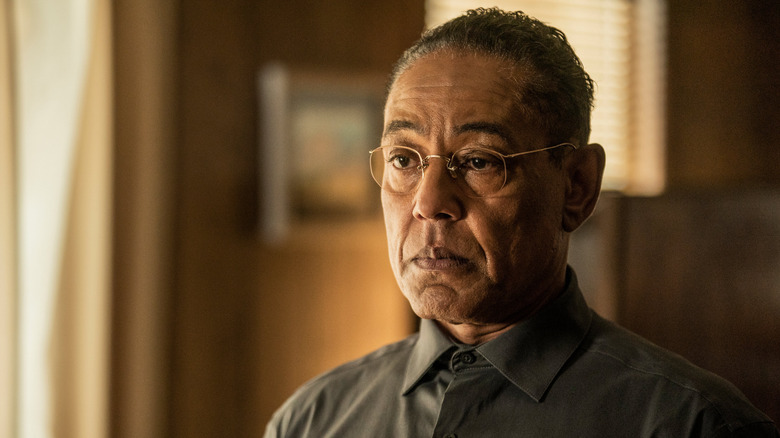Why Better Call Saul's Cast Nearly Didn't Include Gus Fring
"Breaking Bad" villain Gustavo Fring is one truly terrifying antagonist, and fans were thrilled when the character became a part of the spin-off series, "Better Call Saul." For actor Giancarlo Esposito, however, bringing back the brutal businessman for another show wasn't always a sure thing.
In an interview with GQ, the actor revealed that he was initially hesitant to step back into the shoes of the man many came to know as "the Chicken Man." And it's hard not to blame him. Not only was he pushed into some very uncomfortable situations as the character, but he gave an absolutely incredible performance that would be hard to top. Thankfully for all of us, Esposito decided to give Gus another go and take him to even more vicious lengths.
One of the things that made "Better Call Saul" especially compelling and unique as a spin-off was that it served as both a prequel and a sequel, showing events that happened before and after "Breaking Bad," exploring the world in new ways and deepening the canon.
Gus was one of many major players from the Albuquerque crime scene that appeared in both shows — along with Mike Ehrmantraut (Jonathan Banks) and the Salamanca crime family — but he had to bring a very different energy to each series and changed the most across them. That's intimidating stuff, but Esposito was up to the task.
'He's history. He's iconic'
"Breaking Bad" was a cultural phenomenon, and Gus Fring was at the center of that phenomenon for the final few seasons. Fring was the head of both a massive methamphetamine ring and the owner of the successful Los Pollos Hermanos chicken restaurants — and Giancarlo Esposito's ability to go from his customer-service face to downright murderous in a split second was terrifying. "Breaking Bad' ended in 2013, and by the time Esposito was needed on "Better Call Saul," a few years had passed and he had moved on to other projects.
When asked about his thought process on coming back to "Better Call Saul," Esposito was candid:
"Big decision for me to make. I felt like I was going through the same dance — but I felt like I didn't wanna go back. In my brain, I was like, 'I can't mess with that guy. That guy is done, man. He's history. He's iconic. I don't wanna mess with him anymore.'"
Fring's arc on "Breaking Bad" was intense and ended pretty explosively, so it's understandable that Esposito was hesitant to return to the character. After all, why mess with perfection? However, when the consummate performer realized that diving into the character in a different period in his life could be a unique acting challenge, he decided to jump back in.
Deepening an already complex character
Instead of simply letting Gus Fring remain in his past, Giancarlo Esposito decided to try and take the character to another level, examining how he might have behaved differently when he was younger before he met Walter White (Bryan Cranston). He ended up creating a version of Gus that was "more volatile" and "less controlled," and he projected those heightened emotions into the performance beautifully.
Gus in "Breaking Bad" is an inhuman machine, a business-minded killer whose humanity died years before with the loss of his partner. In "Better Call Saul," he's still figuring things out and building his empire, and he's still occasionally vulnerable. Seeing Gus Fring vulnerable made the character that much more compelling, and his time on "Breaking Bad" is only enriched by it.
After reviving the role for "Better Call Saul," Esposito realized that he had a lot more of the fast food gangster in him. Now, he wants to make a Gus Fring prequel series that follows the rise of the crime lord. While that might be challenging given Esposito's increasing age, maybe they could do some kind of frame narrative where he tells the story and a younger actor plays him in flashbacks.
Either way, I would love to see more of Gus Fring, and I'm glad that we got a bit of that in "Better Call Saul."


